|
On this day in 1192, King Richard I was captured in the Austrian town of Vienna whilst on his way home from crusade by King Leopold V of Austria. Following his departure from the Holy land in the October, Richard the Lionheart was travelling in a disguise when he was captured and imprisoned. The English king was held hostage until February 1194, a ransom was eventually paid to release the king, part of which was used to build the Austrian town Wiener Neusdadt.
0 Comments
King Richard I was a rebellious young man who had frequently challenged his fathers authority and had continuously been a thorn in his side. At the age of sixteen, Richard joined both his brothers, Henry and Geoffrey, in a revolt against their father whom they sought to dethrone. At an early age he showed significant political and military ability, becoming noted for his chivalry and courage, along with his physical presence, he was said to be very attractive; with hair that was between red and blond, light blue eyes and a pale complexion, these facts secured his popularity with the masses. He was also a vicious and cruel man. When crowned King of England, he barred all Jews and women from the coronation ceremony, some Jewish leaders nevertheless arrived to present gifts for the new king. On his orders Richard's courtiers stripped and flogged the Jews, then flung them out. When a rumour spread that Richard had ordered all Jews to be killed, the people of London began a massacre. Many Jews were beaten to death, robbed and burned alive, many Jewish homes were burned down, and several Jews were forcibly baptised, some sought sanctuary in the Tower of London others managed to escape. Baldwin of Exeter the Archbishop of Canterbury reacted by replying "If the King is not God's man, he had better be the devil's” Richard soon realised that his actions could destabilise his realm, on the eve of his departure on crusade, Richard ordered the execution of those responsible for the murders and persecutions. Those who were hanged were not his henchmen, but rioters who had accidentally burned down Christian homes, and to make sure that people took him serious in his actions he issued a royal writ demanding that the Jews be left alone. Not surprisingly this was not taken seriously, the following March there was further violence, including a massacre at York. Richard swore an oath to renounce his past wickedness in order to show himself worthy to take the cross. He started to raise and equip a new crusader army. He spent most of his father's treasury, raised taxes and sold official positions and lands to those interested in them. Even those already appointed were forced to pay huge sums to retain their posts including the Bishop of Ely who bid £3,000. William Longchamp coughed up an equal amount to remain as Chancellor. Instead of leaving his younger brother John in control of England in his absence he appointed as regents Hugh, Bishop of Durham and William de Mandeville who soon died and was replaced by William Longchamp. It comes a no surprise then, that John was not satisfied by this decision and attempted to overthrow Longchamp, John was more popular than Longchamp in London, and in October 1191 the city opened the gates to him while Longchamp was confined in the tower. John promised the city the right to govern itself in return for recognition as Richard's heir presumptive. Some were in support of John as Richard only spent six months of his reign in England and emptied the kingdom's coffers to pay for his crusade. According to William Stubbs in The Constitutional History of England “ He was a bad king: his great exploits, his military skill, his splendour and extravagance, his poetical tastes, his adventurous spirit, do not serve to cloak his entire want of sympathy, or even consideration, for his people. He was no Englishman, but it does not follow that he gave to Normandy, Anjou, or Aquitaine the love or care that he denied to his kingdom. His ambition was that of a mere warrior: he would fight for anything whatever, but he would sell everything that was worth fighting for.The glory that he sought was that of victory rather than conquest. ” Richard said of England it is "cold and always raining," and when it came to raising funds for his Crusade, he was said to declare,"I would have sold London if I could find a buyer." But what we should remember is that to the king, his nobles and royal household, England was just a part of the vast estate they governed, Richard felt more French than English and therefore put the people of this land second. The Plantagenet kings before the 14th century had no need to learn the English, a language of a people they really new nothing about. Although England was a major part of his territories Richard faced no major internal or external threats during his reign, it was his French territories where he felt that he was needed. He left England in the hands of various officials, including, at times his mother. This meant that Richard was far more concerned with his more extensive French lands and he either did not know or care that the people of England were being subjected to the greed of feudal barons, contemptuous sheriffs and as history puts it the ’wicked and cowardly John’. John was no hero he was untrusting and he too was selfish but he took it upon himself to take control of a country that might have easily fallen into the hands of unscrupulous barons. Of course, that's another story. Richard I's life is viewed by his exploits whist on crusade where a great piece of medieval PR by Richard de Templo, makes the king sound like some sort of superman. "King Richard pursued the Turks with singular ferocity, fell upon them and scattered them across the ground. No one escaped when his sword made contact with them; wherever he went his brandished sword cleared a wide path on all sides. Continuing his advance with untiring sword strokes, he cut down that unspeakable race as if he were reaping the harvest with a sickle, so that the corpses of Turks he had killed covered the ground everywhere for the space of half a mile." But just as Aeschylus wrote in 458 BC "By the sword you did your work, and by the sword you die." Richard I died when he was struck down when suppressing a revolt in Limousin in France in 1199. In the March he had arrived at Chalus Chabrol Castle, it was while Richard was walking the castle's perimeter that he was struck by a crossbow bolt in the left shoulder just below his neck, fired by an archer named Pierre Basile. An attempt was made to remove the bolt but "extracted the wood only, while the iron remained in the flesh... but after this butcher had carelessly mangled the King's arm in every part, he at last extracted the arrow." Richard's wound soon became gangrenous and he died on the 6th of April 1199. One can picture the scene, a golden light shining through the castle window, the king in the arms of his mother, his blooded three lion tabard placed over a chair, he heroically gestures towards the door as his pardoned enemy walks away clutching a bag of gold. The last breath of a king drowned in the wailing of his mother. The story, that from his death bed Richard pardoned the man who fired the bolt looks like a public relations stunt to me,
what better way to reinforce the idea that Richard was the magnificent king his subjects always thought he was. My problem with this story is, how did anyone know exactly who fired that fatal crossbow bolt from out of the many armed men at ground level, the truth is of course, they probably did not. How Pierre Basile arrived at the kings beside goes unrecorded, but it is said that he was paid handsomely and sent on his way, only the very next day the poor man was flayed alive. Richard may well have ordered the death of this unfortunate archer, a young man in the wrong place at the wrong time, if he did then it was an act of vengeance, after all Richard had made grand gestures before only to go back on them later, however I believe we should look to Richard's mother, the fiery strong willed Eleanor, his most ardent supporter, as the person who ordered this man death. As was the norm Richard's heart was taken to Rouen and the rest of his body to Fontevraud Abbey in Anjou and while his mortal remains turned to dust his reputation as a handsome and mighty crusading king is as solid today as it was then. Frederick I of Germany was Holy Roman Emperor from 1155 until his death in 1190. Known as Barbarossa because he had long red beard and a fiery temper. It is said of Barbarossa that he was shrewd and calculating, but it has also been said that he was an attractive and kind man and much loved by his people. He visited many parts of his kingdom to establish peace in the weeks following his coronation in an attempt to make Germany a united nation. A number of nobles began to quarrel among themselves, threatening to undermine his hard work, instead of coming down hard on these men as other rulers might with exile or death, he punished them, forcing them to carry dogs on their shoulders from one country to another. This worked, for Frederick finally succeeded in keeping the nobles in the different provinces of Germany at peace with one another, and persuaded them to work together for the good of the whole empire. In 1188, Fredrick embarked on the Third Crusade, joining forces with the French king Philip Augustus and our English king Richard I, bringing fifteen thousand men to the cause, but by 1190 he was dead. Historians believe that whilst crossing the Seleph River near Antioch, Fredrick Barbarossa suffered a heart attack and drowned after falling from his horse. When an attempt to preserve his body in a barrel of vinegar failed, his flesh was interred in the Church of St Peter in Antioch, his bones in the cathedral of Tyre, and his heart and inner organs in Tarsus.
His sudden death during this crusade devastated political and religious morale for the crusaders. |
Archives
February 2024
Categories
All
After ten years in the workplace I became a mother to three very beautiful daughters, I was fortunate enough to have been able to stay at home and spend my time with them as they grew into the young women they are now. I am still in the position of being able to be at home and pursue all the interests I have previously mentioned. We live in a beautiful Victorian spa town with wooded walks for the dog, lovely shops and a host of lovely people, what more could I ask for.
All works © Andrea Povey 2014. Please do not reproduce without the expressed written consent of Andrea Povey. |
- Home
-
My Family Stories
- Bustaine of Braunton: Introduction
- Hunt of Barnstaple Introduction >
- Lakeman of Mevagissey >
- Meavy Introduction >
- Mitchell of Crantock: An Introduction >
- Mohun of Dunster: Introduction >
- Purches of Hampshire and Cornwall >
- Scoboryo of St Columb Major >
-
Thomas Vaughan: An Introduction
>
- Smith of Barkby Introduction >
- Taylor Introduction >
- Tosny of Normandy >
- Toon of Leicestershire: Introduction >
- Underwood of Coleorton Introduction
- Umfreville of Devon >
- Other Families
- History Blog
- Wars of the Roses Blog
- The Ancestors
- A to E
- F to J
- K to O
- P to T
- U to Z
- Hendley of Coursehorne Kent
- Pigott Family of Whaddon Buckinghamshire
- Links
- Contact
- Umfreville test
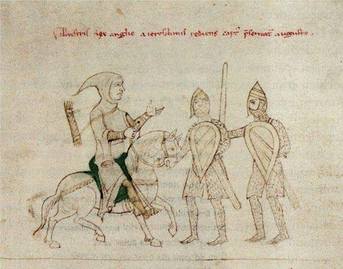
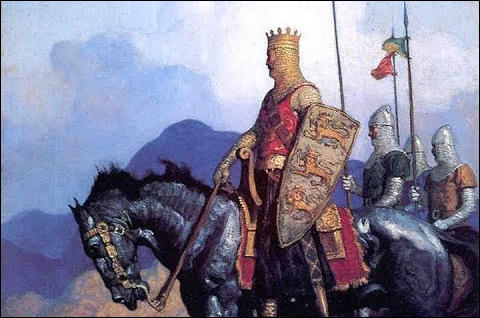
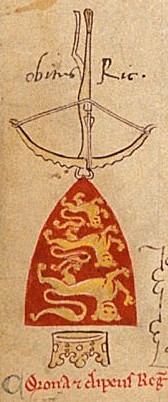
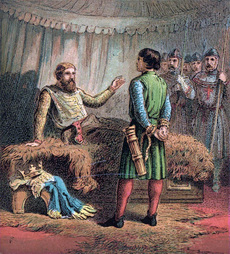
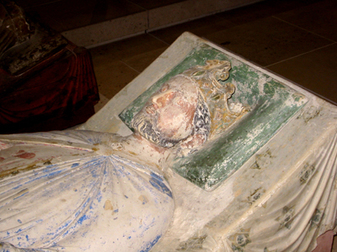
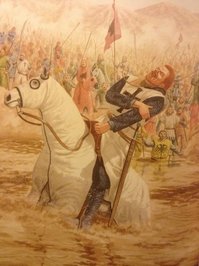
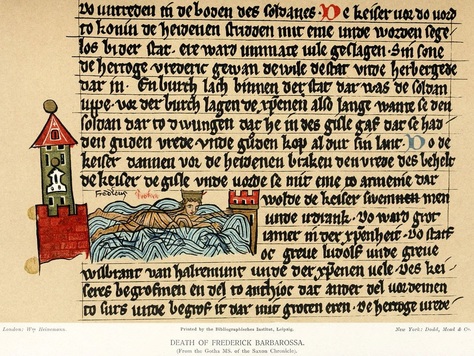

 RSS Feed
RSS Feed
